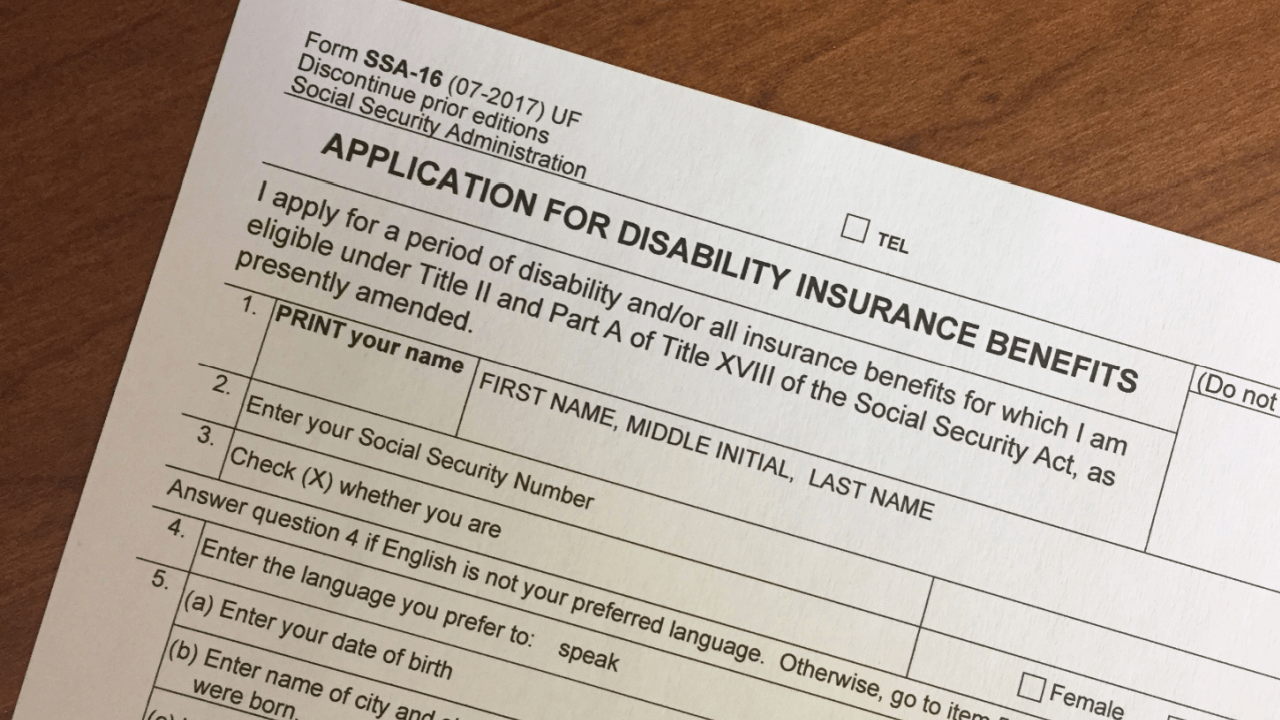
What Is the Most a Disability Lawyer Can Charge? A Clear Look at Fee Limits and Rules
What Is the Most a Disability Lawyer Can Charge? Understanding SSA Rules
If you’re considering applying for Social Security Disability Insurance (SSDI) benefits, you may wonder: What is the most a disability lawyer can charge? The good news is that lawyer fees in SSDI cases are carefully regulated by the Social Security Administration (SSA), making legal representation more accessible to those who need it most.
Unlike other types of legal services, where fees can vary widely, disability lawyer fees are standardized to protect applicants. In most cases, attorneys only get paid if they help you win your case, and their payment comes from your awarded back pay, not out of your current or future benefits.
In this article, we’ll walk you through SSA rules on lawyer fees, the typical fee structures, exceptions to the standard cap, and why hiring a disability lawyer is often a smart investment for your SSDI claim.
How Disability Lawyer Fees Are Structured: Contingency Basis Explained
Disability lawyers work primarily on a contingency fee basis. This means they only receive payment if they successfully help you obtain benefits.
Here’s how the standard fee structure works:
- Standard Fee Percentage: Disability lawyers typically receive 25% of your awarded back pay.
- Maximum Fee Cap: As of SSA regulations, the maximum amount a disability lawyer can charge is $7,200.
(Note: This cap was increased from $6,000 to $7,200 in November 2022.) - Back Pay Only: Fees are taken solely from your past-due benefits (also known as back pay), not from your ongoing monthly disability payments.
- No Fees if You Don’t Win: If you do not receive benefits, your lawyer does not collect any fee.
The SSA must approve all attorney fees before any payment is made, ensuring transparency and fairness for claimants. This approval process involves:
- Pre-approval of Fee Agreements: Most disability lawyers and their clients sign a written fee agreement at the start of representation. This agreement must be submitted to SSA for review and approval before the lawyer is paid.
- SSA Review of Fee Agreements: The SSA ensures the agreement complies with federal regulations before authorizing the payment. If the agreement doesn’t meet SSA standards, the lawyer must file a separate fee petition seeking approval.
Additionally, if a claimant hires multiple representatives (for example, if they switch lawyers mid-case), the fee may be split between the lawyers, but the total cannot exceed the 25% or $7,200 cap unless the SSA specifically authorizes a higher fee through petition.
Are There Exceptions to the Standard Disability Lawyer Fee Cap?
While the $7,200 cap is the standard, there are a few exceptions where a lawyer could potentially charge more:
Fee Petition Instead of Fee Agreement
In rare cases where the standard fee agreement doesn’t apply—such as if a case involves unusually complex appeals—a lawyer may submit a fee petition to the SSA asking for a higher fee. However, the SSA must approve any amount above the cap.
When lawyers file a fee petition, they must explain in detail:
- The number of hours worked on the case
- The complexity of the legal and medical issues involved
- The specific challenges faced (such as multiple hearings or difficult expert testimony)
The SSA carefully reviews these petitions to determine whether a higher fee is reasonable based on the work performed.
Federal Court Appeals
If your case progresses beyond SSA hearings and moves into federal court, different fee structures may apply. These fees are handled separately under court rules, and they must also be approved by the court and reported back to SSA.
In federal court cases, fees are sometimes paid under the Equal Access to Justice Act (EAJA), which allows successful claimants to recover legal fees from the federal government rather than from their own awarded benefits.
Multiple Appeals and Hearings
In especially complex cases involving multiple reconsiderations, hearings, and Appeals Council reviews, lawyers may petition for a fee higher than $7,200. However, they must document the additional work carefully, and the SSA is not obligated to grant a higher fee.
Out-of-Pocket Expenses
In addition to contingency fees, lawyers may request reimbursement for necessary out-of-pocket expenses such as:
- Medical records fees
- Doctor report costs
- Postage and administrative expenses
These expenses are typically modest and disclosed clearly before being collected.
What Services Are Included in a Disability Lawyer’s Fee?
The contingency fee you agree to covers a wide range of services that are critical to the success of your disability claim. SSDI cases involve much more than simply filing paperwork; they require legal expertise, medical evidence coordination, and strategic case management at every stage.
Here’s what’s typically included:
Initial Consultation and Case Evaluation
A disability lawyer reviews your medical records and work history to identify weaknesses and prepare a strong case from the beginning.
Filing the Initial SSDI Application
Completing the SSDI application is not just filling out forms. Lawyers ensure all questions are answered accurately, relevant medical and vocational information is emphasized, and the legal standard for disability is properly supported from the beginning.
Gathering and Submitting Medical Evidence
One of the most important parts of any disability case is the medical evidence. Lawyers gather hospital records, imaging results, specialist reports, medication lists, and detailed functional assessments to present a clear, organized package to the SSA.
They also identify missing documents and request written statements from treating doctors, known as Residual Functional Capacity (RFC) forms, which can be decisive in proving disability.
Managing SSA Communications and Deadlines
Throughout the application and appeals process, the SSA will send requests, notices, and deadlines. Your lawyer tracks all communications, responds appropriately, and ensures no important dates are missed—preventing automatic denials.
Appealing Denied Claims
A good lawyer keeps track of SSA notices and deadlines to avoid errors and denials.
Preparing You for Disability Hearings
At the hearing stage, lawyers prepare you thoroughly by:
- Reviewing likely questions you’ll face
- Conducting mock interviews
- Advising you on how to describe your limitations clearly and credibly
- Preparing opening statements and examining vocational or medical experts
A well-prepared claimant is much more likely to win at the hearing.
Negotiating Back Pay Calculations
Lawyers also verify that your back pay is calculated correctly by the SSA, ensuring you receive the full benefits you are entitled to based on your disability onset date and application date.
Handling Post-Approval Issues
Even after winning your case, issues may arise involving payment errors, Medicare enrollment, or ongoing eligibility. Many disability lawyers assist clients with these post-approval matters as part of their service.
When Do You Actually Pay a Disability Lawyer?
One of the biggest concerns applicants have is when they are expected to pay their disability lawyer. Fortunately, with SSDI claims, there are no upfront costs.
Here’s how payment works:
- After You Win: Payment to your lawyer only happens after you win your case and receive a favorable decision from the SSA.
- Automatic Deduction: The SSA automatically deducts the approved attorney fee from your awarded back pay and sends it directly to your lawyer.
- No Payment if You Lose: If your claim is not approved, your lawyer does not get paid a fee for their time and effort.
This arrangement gives applicants peace of mind, allowing them to pursue a disability claim without worrying about upfront legal bills.
Is Hiring a Disability Lawyer Worth the Fee?
Now that you know what is the most a disability lawyer can charge, the next important question is whether hiring a lawyer is truly worth it.
In most cases, the answer is a strong yes—and statistics back this up.
Many claimants choose to work with disability lawyers during the hearing process. Lawyers know how to gather medical records, prepare detailed evidence, cross-examine vocational experts, and present your story in a compelling way that fits SSA requirements.
Fee Structure: While the lawyer may collect 25% of your back pay (up to the $7,200 limit), this fee is only collected if your case is successful. The contingency fee structure means you pay nothing upfront.
For example: If awarded $30,000 in back pay, the attorney fee would be capped at $7,200, leaving you with $22,800.
The contingency fee structure means you only pay if your case is successful, making legal representation accessible.
Common Misconceptions About Disability Lawyer Fees
Many applicants hesitate to call a disability lawyer because they believe myths about the cost of representation. Let’s clear up some common misconceptions:
Myth 1: Disability Lawyers Are Too Expensive
Fact: Thanks to SSA regulations, lawyer fees are tightly controlled and limited to a maximum percentage of your back pay. You don’t need to worry about large legal bills or unaffordable hourly rates.
Myth 2: Lawyers Take All Your Benefits
Fact: A lawyer can only collect up to 25% of your past-due benefits, and nothing from your future monthly payments. The cap ensures you keep the majority of your award.
Myth 3: You Have to Pay Even If You Lose
Fact: If your case is not successful, you owe no legal fees to your lawyer. This contingency fee system ensures lawyers are motivated to win your case.
Myth 4: Only Complex Cases Need Lawyers
Fact: Even straightforward cases benefit from legal help. Small mistakes or missing evidence in seemingly simple claims can cause denial.
Understanding the truth about disability lawyer fees helps you make a more confident and informed decision when pursuing your SSDI benefits.
What Is the Most a Disability Lawyer Can Charge? Final Thoughts on Costs
In answering what is the most a disability lawyer can charge, remember that the SSA’s structured fee limits protect your rights as a claimant.
The contingency-based model—25% of back pay, capped at $7,200—ensures that legal help is affordable and risk-free. For many applicants, having a disability lawyer provides professional representation throughout the process.
Legal support provides professional representation, guidance through the process, and assistance with documentation and procedures.
Get Trusted Legal Help With No Upfront Fees Today
If you’re applying for SSDI or facing a denial, don’t navigate the system alone. Legal Brand Marketing connects you with experienced disability lawyers who can provide professional representation.
Our trusted network ensures you get legal support with no upfront fees. Take the first step—contact us today to be connected with a lawyer who can provide professional representation.
Frequently Asked Questions
1. How much can a disability lawyer charge for a Social Security case?
Disability lawyers typically charge 25% of your back pay, capped at $7,200 under SSA regulations.
2. Do I have to pay anything upfront to hire a disability lawyer?
No, most disability lawyers work on a contingency basis, meaning they only get paid if you win your case.
3. What happens if I lose my disability case?
If your case is denied, you generally owe no legal fees for your lawyer’s services. However, you may still be responsible for out-of-pocket expenses like medical record fees.
4. Can a disability lawyer charge more than $7,200?
Only under special circumstances. A lawyer must petition the SSA for approval if requesting a fee above the standard cap.
5. Are lawyer fees taken from future disability payments?
No, the lawyer’s fee is only deducted from your past-due benefits (back pay), not from your ongoing monthly benefits.
Key Takeaways
- Disability lawyer fees are capped at 25% of back pay, with a maximum of $7,200.
- Payment only occurs after you win your case—no upfront costs.
- Legal support increases approval rates and maximizes awarded benefits.
- Lawyers can petition for higher fees only in complex cases approved by SSA.
- Legal Brand Marketing connects you with trusted disability lawyers to strengthen your SSDI claim.


